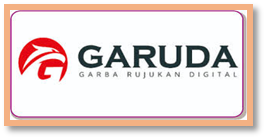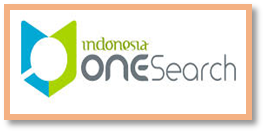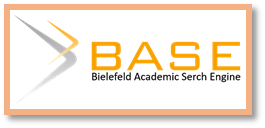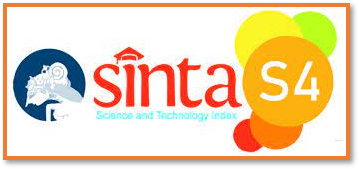Knowledge and Attitude about exclusive breastfeeding in the Puskesmas Trauma Center Samarinda
Abstract
Background : Exclusive breastfeeding is breastfeeding without other additives in infants aged 0-6 months. Exclusive breastfeeding is very beneficial for the baby and his mother. Mother's knowledge and attitude is very influential in realizing exclusive breastfeeding for 6 months. The purpose of this research is to identify mother's knowledge and attitude about exclusive breastfeeding in the Puskesmas Trauma Center Samarinda.Method : The method used in this research is descriptive with survey approach. The samples used were mothers who had children aged 0-6 months as many as 30 respondents. The sampling technique used is Purposive Sampling. The instrument used is a questionnaire. The data analysis used is univariate analysis.Research Result : The results showed that the respondents were well knowledgeable about Exclusive breastfeeding as much as 25 respondents (83.3%), respondents are knowledgeable enough as much as 4 respondents (13,4%), and less knowledgeable respondents as much as 1 respondent (3.3%). Respondents with positive attitude about Exclusive Beastfeeding as much as 14 respondents (46,7%), and respondents with negative attitudes of 16 respondents (53.3%).Conclusions :Knowledge of respondents about Exclusive breastfeeding majority in good knowledge and Attitudes of respondents about Exclusive breastfeeding more negative. With this research is expected to increase Exclusive breastfeeding to infants for 6 months by way of more often do counseling about Exclusive breastfeeding.
Keywords: Exclusive Breastfeeding, Knowledge, Attitude, Mother.
Full Text:
PDFReferences
DAFTAR PUSTAKA
Afiyanti, Y., Rachmawati, I. (2014). Metodologi Penelitian Kualitatif Dalam Riset Keperawatan. Jakarta : RajaGrafindo Persada.
Aminuddin, M, dan Bong, FS (2018). Efektifitas Metode Ceramah Dan Metode Leaflet/Brosur Terhadap Tingkat Pemahaman Ibu-Ibu Post Partum Tentang Asi Ekslusif. Jurnal Kesehatan Pasak Bumi Kalimantan Vol 1 No 2.96-103
Arikunto,S. (2010). Prosedur Penelitian Suatu Pendekatan Praktik. Jakarta : Rineka Cipta.
Azwar, S. (2011). Sikap Manusia Teori dan Pengukurannya. Yogyakarta: Pustaka Pelajar.
Badan Kependudukan dan Keluarga Berencana Nasional & Badan Pusat Statistik Kementerian Kesehatan. (2012). Survei Demografi dan Kesehatan Indonesia 2012. Http://chnrl.org/pelatihan-demografi/SDKI-2012.pdf. Diakses pada tanggal 5 November 2017.
Brough dkk. (2008). Rujukan Cepat Pediatri & Kesehatan Anak. Jakarta: EGC.
Dinas Kesehatan Provinsi Kalimantan Timur. (2015). Profil Kesehatan Tahun 2015.Http://www.depkes.go.id/resources/download/profil/PROFIL_KES_PROVINSI_2015/23_KALTIM_2015.pdf. Diakses pada tanggal 5 November 2017.
Kementerian Kesehatan RI. (2015). Kesehatan Dalam Kerangka Sustainable Development Goals (SDGs). Sdgs.bappenas.go.id. Diakses pada tanggal 5 November 2017.
Kusumaningrum, T. (2016). Gambaran Faktor-Faktor Ibu Yang TidakMemberikan ASI Eksklusif Di Desa Cepokosawit Kabupaten Boyolali. Surakarta : Fakultas Ilmu Kesehatan Universitas Muhammadiyah Surakarta.http://eprints.ums.ac.id/41815/2/02.NASKAH%20PUBLIKASI.pdf. Diakses pada tanggal 3 November 2017
Lissauer, Tom., Avroy, A.F. (2009). At a Glance Neonatologi. Erlangga.
Maulana, M. (2016). Panduan Lengkap Kehamilan. Jogjakarta: Katahati
Mubarak, W.I. (2007). Promosi Kesehatan Sebuah Pengantar Proses Belajar Mengajar Dalam Pendidikan. Yogyakarta : Graha Ilmu.
Notoatmodjo, S. (2012). Metodologi Penelitian Kesehatan. Jakarta : Rineka Cipta.
Notoatmodjo, S. (2014). Ilmu Perilaku Kesehatan Jakarta : Rineka Cipta.
Nursalam. (2013). Metodologi Penelitian Ilmu Keperawatan. Jakarta : Salemba Medika.
Rahman, N. (2017). Pengetahuan, Sikap, dan Praktik Pemberian ASI Eksklusif di Wilayah Kerja Puskesmas Jumpandang Baru Kecamatan Tallo Kota Makassar. http://repository.unhas.ac.id/bitstream/handle/12345. Diakses pada tanggal 15 November 2017.
Ranuh, I.G.N. GDE. (2013). Beberapa Catatan Kesehatan Anak. Jakarta: Sagung Seto.
Setiadi. (2007), Konsep dan Penulis Riset Keperawatan. Yogyakarta : Graha Ilmu.
Soetjiningsih. (2012). Tumbuh Kembang Anak. Jakarta: EGC.
Sugiyono. (2013). Memahami Penelitian Kualitatif. Jakarta : Badan Penerbit FKUI.
Unicef Indonesia. (2012). Mari Jadikan ASI Eksklusif Prioritas Nasional. Https://www.unicef.org/indonesia/id/media_19265.htm. Diakses pada tanggal 2 November 2017.
Wawan, A & Dewi M. (2011). Teori dan Pengukuran Pengetahuan, Sikap, dan Perilaku Manusia Cetakan II. Yogyakarta : Nuha Medika.
Werdayanti, R. (2015). Bapak ASI dan Ibu Bekerja Menyusui. Yogyakarta: Familia.
Widiyanto, S dkk. (2012). Hubungan Pendidikan dan Pengetahuan Ibu tentang Asi Eksklusif dengan Sikap terhadap Pemberian ASI Eksklusif. Jurnal Kedokteran Muhammadiyah, Volume 1, Nomor 1
Yuliarti, N. (2010). Keajaiban ASI Makanan Terbaik untuk Kesehatan Kecerdasan, dan Kelincahan si Kecil. Yogyakarta: C.V. ANDI OFFSET.
DOI: http://dx.doi.org/10.30872/j.kes.pasmi.kal.v4i1.5801
Refbacks
- There are currently no refbacks.
Indexing by :










